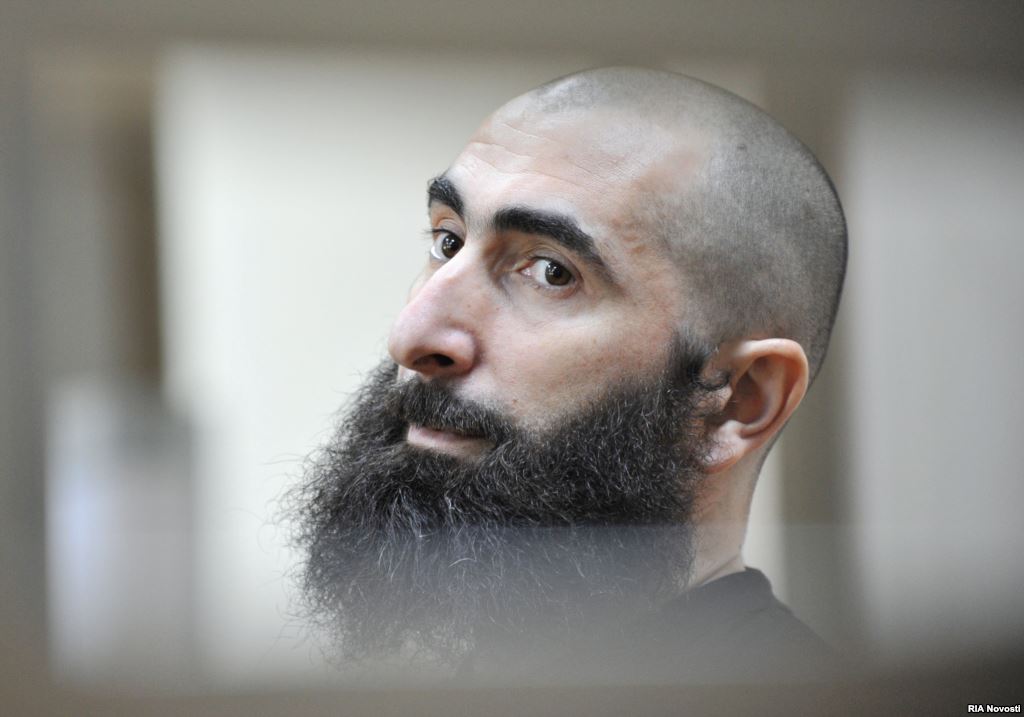
Kremlin Effort Backfires on Embarrassing Imprisoned Ingush Guerilla Commander Magas
Publication: Eurasia Daily Monitor Volume: 10 Issue: 186
By:

On October 15, the trial of the former military emir of the Caucasus Emirate and emir of the Ingush jamaat, Magas (a.k.a. Ali Taziev, Magomed Yevloev) concluded. Magas was the emir of Ingushetia from 2001 to 2010 and the military emir of the entire North Caucasian insurgency from 2005 to 2010. Magas was one of the few remaining militants who had been active in the movement since the first Russian-Chechen war of 1994–1996. Emir Magas was born in Grozny in 1978, and began his career as an insurgent fighting in the ranks of an Ingush group that was under the command of Shamil Basaev in 1994–1996. From 1996 to1999, the period between the two Russian-Chechen wars, the only thing known about Magas is that he moved to Ingushetia and was employed with the local police. A man of few words who avoided media attention, he remained a mystery for many people, including too many of his comrades in arms.
Emir Magas was captured under strange circumstances. The authorities first reported his capture only on July 9, 2010 (https://ria.ru/trend/_detention_Magas_09062010/), while people in Ingushetia and in Moscow’s Ingush diaspora knew about his arrest as early as January 2010. During that six-month period, neither relatives nor lawyers were allowed to see him in captivity, since officially he was not in custody.
After Magas’ arrest was officially announced, the Russian authorities made multiple statements that aimed to convey a single message—that the armed underground in the North Caucasus had finally been defeated (https://rus.ruvr.ru/2010/06/10/9539400/). This message was not only tied to the arrest of the famous militant commander: prior to the announcement of Magas’ capture, the authorities had reported successful operations against the Kabardino-Balkarian insurgents as well. At the end of March 2010, the rebel emir of Kabardino-Balkaria, Anzor Astemirov, was killed. Astemirov also held the position of the chairman of the Caucasus Emirate’s Sharia court (https://www.kavkaz-uzel.ru/articles/104855). After killing Astemirov, Russia’s Federal Security Service (FSB) managed to neutralize several other middle-level commanders of Yarmuk, the Kabardino-Balkarian jamaat (https://www.kavkazweb.net/v-nalchike-siloviki-otraportovali-ob-unichtozhenii-20-letnix-emirov-i-dvux-zhenshhin/). Then, on March 6, 2010, one of the primary ideologues of jihadism in the North Caucasus, Said Buryatsky, was killed (https://www.kp.ru/online/news/628304/). So the FSB had good reasons to rejoice and believe they inflicted irreparable damage to the armed underground in the North Caucasus.
Although the security services’ actions dealt a severe blow to the North Caucasus’ armed underground jihadi movement, it was not as deadly to the jamaats as the government officials believed. The ranks of the jamaats are constantly replenished and today, the jihadists are certainly not lacking in recruits. Of course, a loss at the level of Anzor Astemirov or Emir Magas brings rebel activities to a temporary halt. After the death of a rebel emir, the jamaat normally undergoes a period of reshuffling its cadres, which weakens the militants’ in their routine of attacks. The arrest of Magas has been the only case of the arrest of such a high profile figure in the history of the Caucasus Emirate. The details of his arrest are still being kept secret. According to sources close to the Ingush law enforcement agencies, the FSB most likely managed to plant a mole in the circles close to the military emir. Magas was captured when he was in a deranged state of mind and he was immediately transferred to Moscow. Many months of applying special interrogation techniques apparently did not help the authorities and in June 2010 they were forced to announce that Magas was in custody.
Throughout all three years of investigation, leaks were made suggesting Magas had cooperated with the authorities—giving away rebel hideouts, helping to capture some militants, and so on (https://old.rian.ru/inquest/20101209/306419873.html). In reality, it is likely that the government was trying to discredit Emir Magas in the jihadists’ eyes, but the latter never had doubts about their leader (https://hunafa.com/?p=5205). The captured commander’s behavior in court did not look like that of a person who had cooperated with the authorities (https://www.chechenews.com/world-news/breaking/12649-1.html). On the contrary: when the authorities realized that Magas had actually improved his image during the court proceedings, they decided to stop video reporting from the trial. Investigators accused Taziev of setting up an illegal armed group, armed rebellion, banditry and terrorism. About 600 victims and 400 witnesses were listed in his case. Taziev did not plead guilty to most of the accusations (https://lenta.ru/news/2013/10/15/magas/).
Emir Magas was accused of hundreds of crimes and violating dozens of articles of the Russian Criminal Code. He was accused of participating in and ordering multiple terrorist attacks, including the brazen day-time attack on the motorcade of Ingushetia’s “president,” Yunus-Bek Yevkurov, in 2009 (https://www.compromat.ru/page_28018.htm). Prosecutors asked for a life sentence (https://newsru.com/russia/04oct2013/magas.html). The judge read the 330-page verdict on October 15 (https://echo.msk.ru/news/1177848-echo.html), finding Magas guilty of dozens of breaches of the Russian Criminal Code (https://newsru.com/russia/15oct2013/magas_life.html), agreeing with the prosecution entirely and sentencing him to life in prison.
There are numerous dark sides to this story. In particular, it is unclear why the trial ignored the primary crime, which was sufficient to sentence Magas to multiple life sentences—the Beslan school siege of September 1–3, 2004. From the very beginning of the investigation of that hostage crisis, Magas was implicated as the organizer of and a participant in the hostage seizure, which ended with the deaths of about 200 school children and 150 adults (https://topwar.ru/21858-tayny-beslanskoy-tragedii-uchastniki-band-gruppy-ne-osuzhdeny-i-spustya-vosem-let.html). Strangely, however, this incident was apparently unimportant to the court. Was the attempt on the life of Yunus-Bek Yevkurov more important than the Beslan tragedy?
After the trial, Magas practically remained undefeated for his associates, so the authorities will likely continue their efforts to use him to discredit the jihadists. However, he has been in custody for almost four years and thus can no longer be used to harm the insurgents. The authorities’ actions demonstrate their weakness in the face of the ideologically driven jihadists. That is why the Russian government’s victory in its case against Emir Magas will not have much impact on the ongoing insurgency in the North Caucasus.




